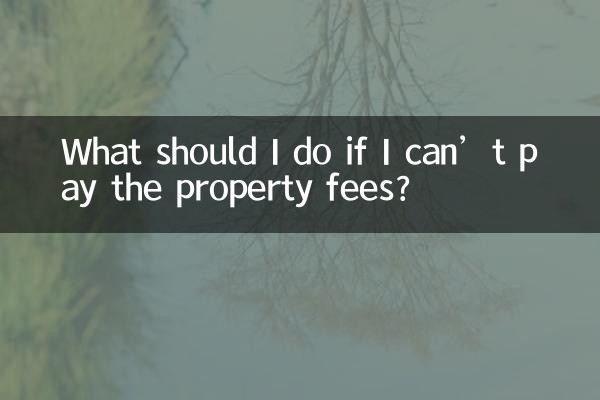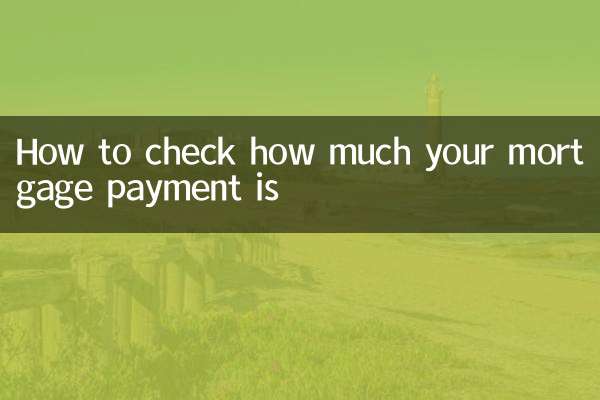What should I do if I can’t pay the property fees? Popular topics and solutions on the Internet in the past 10 days
Recently, "unable to pay property fees" has become one of the hot topics on social platforms and news media. As economic pressure increases, many property owners are facing difficulties in paying dues due to reduced income or rising property fees. This article combines the hot discussions on the Internet in the past 10 days, organizes structured data and practical suggestions to help owners deal with the dilemma legally.
1. Statistics of hot search topics related to property fees in the past 10 days

| Ranking | Hot search topics | platform | Number of discussions (10,000) |
|---|---|---|---|
| 1 | Property owners collectively protest against rising property fees | 12.3 | |
| 2 | How to negotiate for property fee reduction after unemployment | Douyin | 8.7 |
| 3 | Lawyers interpret property fee legal disputes | Zhihu | 5.4 |
| 4 | Cases of property fee arrears in old communities | Today's headlines | 3.9 |
2. Analysis of core causes of property fee disputes
According to netizen discussions and media reports, property fee arrears mainly involve the following issues:
| Reason type | Proportion | Typical scenario |
|---|---|---|
| financial difficulties | 45% | Unemployment, salary cut, illness, etc. |
| Real estate services are not up to standard | 30% | Poor hygiene, damaged facilities and unrepaired facilities |
| Fee dispute | 15% | Price increases are not announced and charges are not transparent |
| Others | 10% | Property rights disputes, vacant house disputes, etc. |
3. 6 legal solutions
Based on legal experts and community mediation cases, the following measures are recommended:
1.Negotiate installment or reduction
Take the initiative to contact the property company, provide proof of income and other materials, and apply for installment payment or temporary exemption. Some property companies have preferential policies for owners in need.
2.Check the legality of charges
The property management company is required to produce charging basis documents, check the local price department’s filing standards, and complain to the housing and construction department if there are excessive charges.
3.Establish an owners’ committee to collectively safeguard rights
The owners' meeting passed a resolution to renegotiate service standards and fees, and more than 70% of the owners agreed to change the property company.
4.Legal remedies
If you refuse to pay fees because the property services are not up to standard, evidence (photos, videos, third-party evaluation reports) must be retained for litigation.
5.Apply for social assistance
Some areas have property fee subsidy policies for low-income households and extremely poor families. You can consult the community neighborhood committee.
6.Vacant room fee adjustment
According to the "Property Service Charges Management Measures", if a house is vacant for more than 6 consecutive months, you can apply for 70% payment.
4. Risk warning
Special attention is required:
- Long-term default may result in liquidated damages (generally calculated at 3‰ per day)
- If the accumulated arrears exceed 3 months, the property owner has the right to sue and apply for enforcement.
- It is illegal to refuse to pay and cause water and electricity outages. You can call 12345 to make a complaint.
5. References to real cases from netizens
| area | Processing method | result |
|---|---|---|
| Hangzhou | Provide unemployment certificate + installment agreement | 3 months fee reduction |
| Chengdu | Property owners committee re-tenders property | Cost reduced by 15% |
| Guangzhou | Complain to the Housing and Urban-Rural Development Bureau about arbitrary charges | Refund overcharges |
When facing pressure on property fees, it is recommended to prioritize resolution through communication and negotiation while keeping all written records. Economic difficulties are not a reason for breach of contract, but you can find a balance point through legal channels to protect your own rights and interests while avoiding legal risks.

check the details

check the details